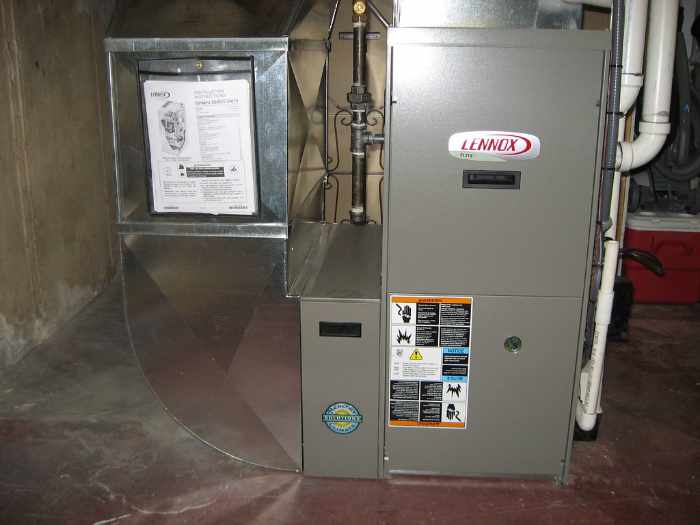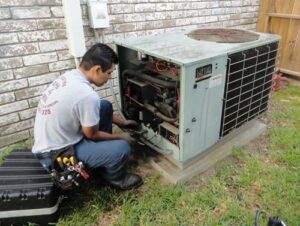Evaluating the pros and cons of home heater repairs versus replacement is crucial for homeowners who want to maintain a comfortable and energy-efficient living space. Making the right decision can save you money, ensure reliable heating, and improve the overall efficiency of your home’s heating system. There are several factors to consider, including the age and condition of your heater, the cost of repairs, and the potential benefits of upgrading to a newer model. Understanding these elements can help you make an informed choice between repairing your current heater or investing in a replacement.

Pros & Cons of Home Heater Repairs Versus Replacement
Rather than waste time chatting, let’s jump right in.
1. Condition of Your Heater
The age and condition of your heater are significant factors in deciding whether to repair or replace it. Most heaters have a lifespan of 15 to 20 years, depending on the type and quality of the unit, as well as how well it has been maintained. If you have a broken furnace and the cost to repair it is enormous, it may be more cost-effective to replace it with a new, more efficient model. On the other hand, if your heater is relatively new and has only experienced minor issues, repairing it may be the best option. Regular maintenance and timely repairs can extend the life of your heater and keep it running efficiently for years to come.
2. Cost of Repairs and Energy Efficiency
When evaluating the cost of repairs, it is important to consider both the immediate expense and the potential for future repairs. If the cost of repairing your heater is less than half the cost of a new unit, it is generally advisable to proceed with the repair. However, if your heater requires frequent or costly repairs, replacing it with a new, more reliable model may be a better long-term investment. Additionally, consider the availability of replacement parts for your current heater. As heaters age, it can become increasingly difficult and expensive to find the necessary parts for repairs. In such cases, replacing the unit may be more practical and cost-effective.
One of the main advantages of replacing an old heater with a new model is the potential for improved energy efficiency. Newer heaters are designed to meet higher energy efficiency standards, which can result in significant savings on your energy bills. If your current heater is older and less efficient, upgrading to a new model can help reduce your energy consumption and lower your heating costs. Additionally, newer heaters often come with advanced features, such as programmable thermostats and variable-speed motors, that can further enhance their efficiency and performance. While the initial cost of a new heater may be higher, the long-term savings on energy bills can offset this expense.
3. Overall Performance
The reliability and performance of your heater are essential for maintaining a comfortable living environment. Frequent breakdowns and inconsistent heating can be frustrating and inconvenient, especially during the cold winter months. If your heater is no longer providing reliable and consistent heat, it may be time to consider a replacement. A new heater can offer improved performance, greater reliability, and peace of mind knowing that your home will stay warm and comfortable. On the other hand, if your heater is still performing well and only requires occasional minor repairs, it may be worth keeping it for a few more years.
4. Environmental Impact and Air Quality
Replacing an old, inefficient heater with a new, energy-efficient model can have a positive impact on the environment. Newer heaters are designed to use less energy, which reduces greenhouse gas emissions and helps conserve natural resources. By upgrading to a more efficient heater, you can reduce your carbon footprint and contribute to a more sustainable future. Additionally, many new heaters are manufactured with environmentally friendly materials and processes, further reducing their environmental impact. If you are concerned about the environmental impact of your heating system, replacing your old heater with a new, energy-efficient model can be a responsible choice.
The comfort and air quality in your home can also be affected by the condition of your heater. An old or poorly maintained heater may not distribute heat evenly throughout your home, leading to cold spots and uneven temperatures. Additionally, older heaters can accumulate dust and debris, which can reduce indoor air quality and exacerbate allergies or respiratory issues. A new heater can provide more consistent and even heating, improving the overall comfort of your home. Many newer models also come with advanced air filtration systems that can help improve indoor air quality by removing dust, allergens, and other contaminants.
5. Warranty and Support
When considering replacement or repairs for your heater, it is important to factor in the warranty and support available for each option. New heaters typically come with manufacturer warranties that cover parts and labor for a specified period, providing peace of mind and protection against unexpected repair costs. If your current heater is no longer under warranty and requires significant repairs, the cost of these repairs can quickly add up. In such cases, replacing the heater with a new model that comes with a comprehensive warranty can be a wise investment. Additionally, newer heaters often come with improved customer support and service options, making it easier to address any issues.
Repair or Replacement?
Now that you’ve seen the pros and cons of home heater repairs versus replacement you can decide which route makes more sense for your situation. It is important to carefully weigh the pros and cons of each option and consider the long-term implications for your home and budget. Consulting with a professional HVAC technician can also provide valuable insights and recommendations based on your specific situation. They can assess the condition of your current heater, estimate the cost of repairs, and help you determine whether a replacement is the best course of action.
By evaluating your options and making an informed decision, you can ensure that your home remains comfortable and energy-efficient throughout the heating season. Whether you choose to repair your existing heater or invest in a new one, the key is to prioritize regular maintenance and address any issues promptly to extend the life of your heating system and maximize its performance.



